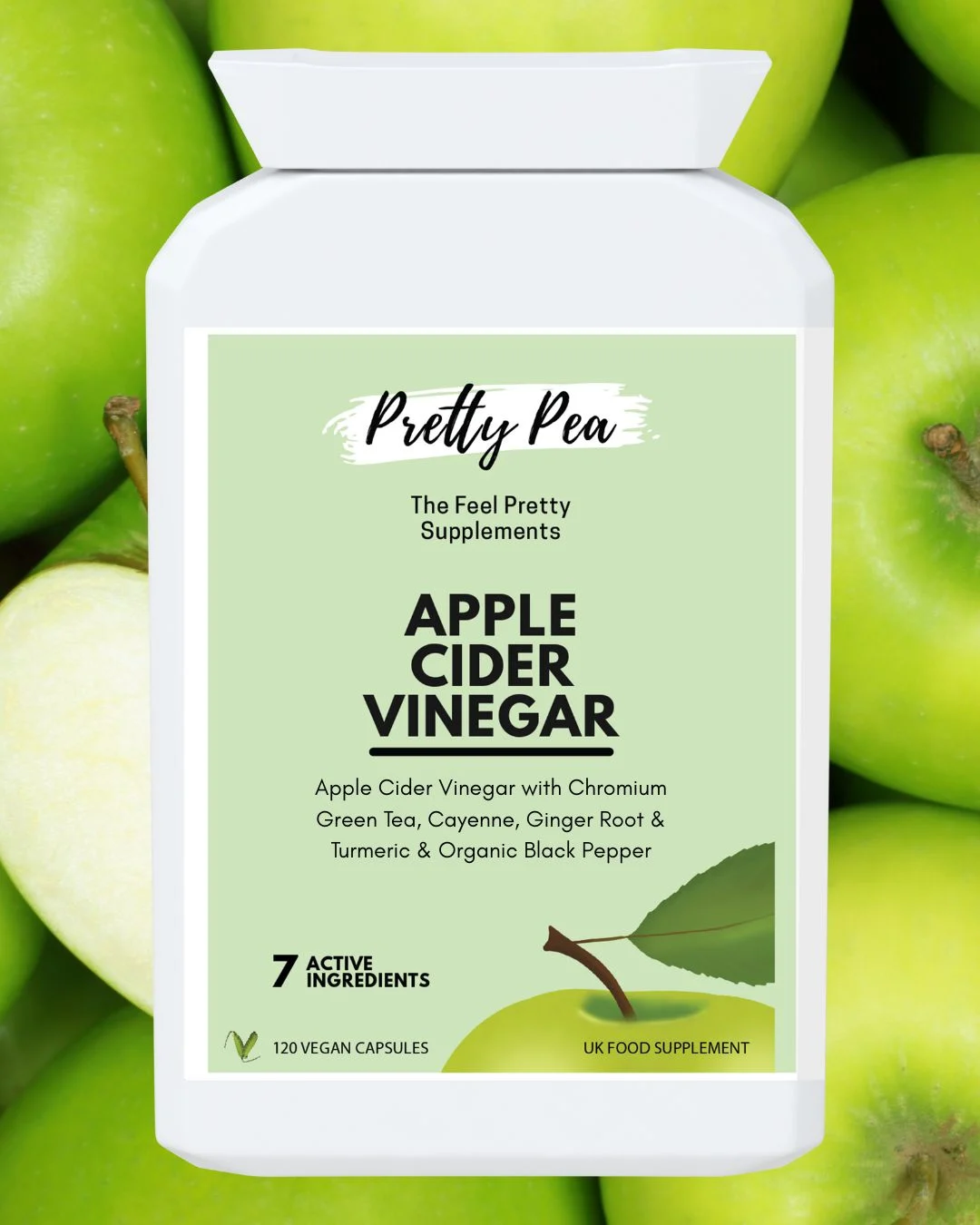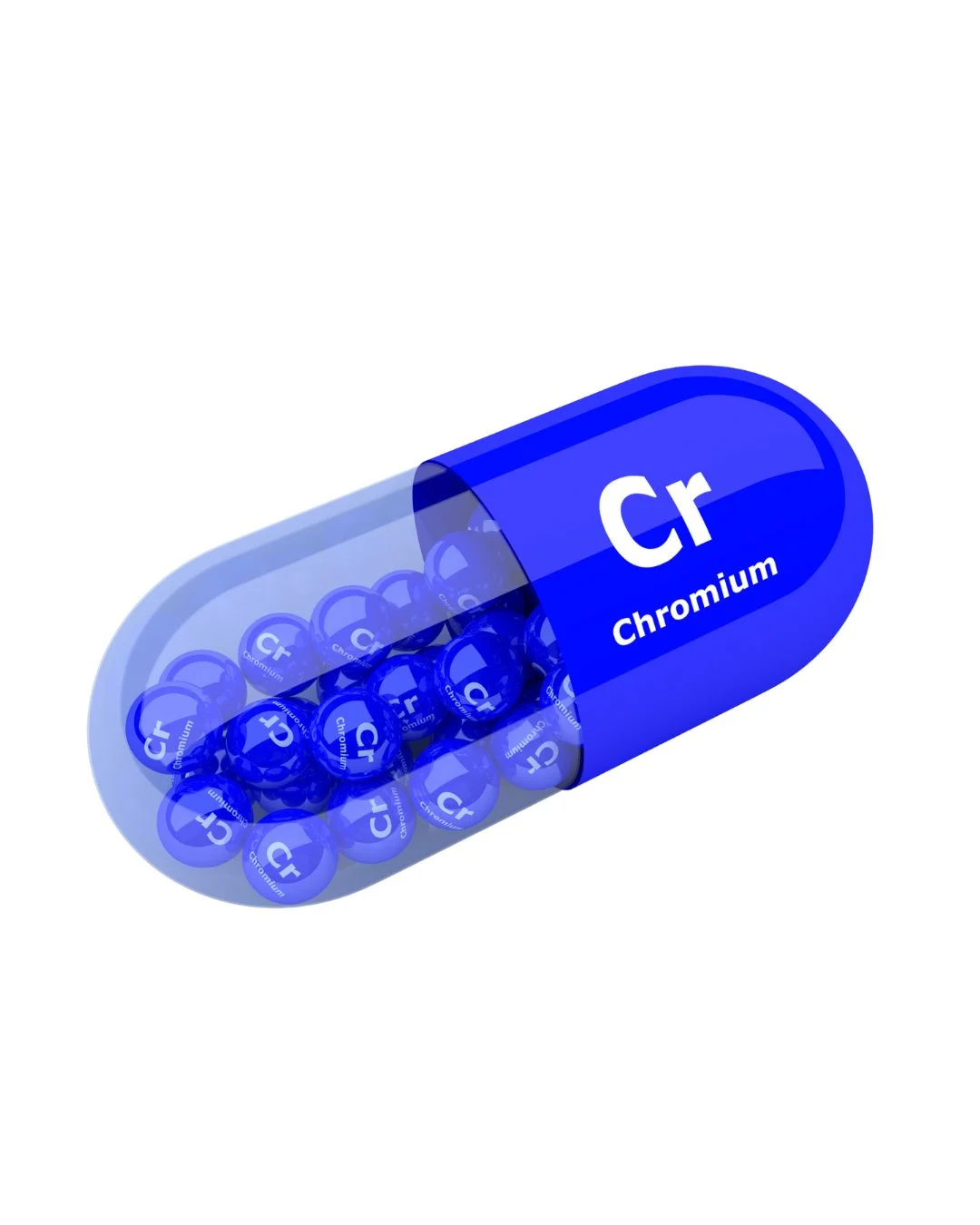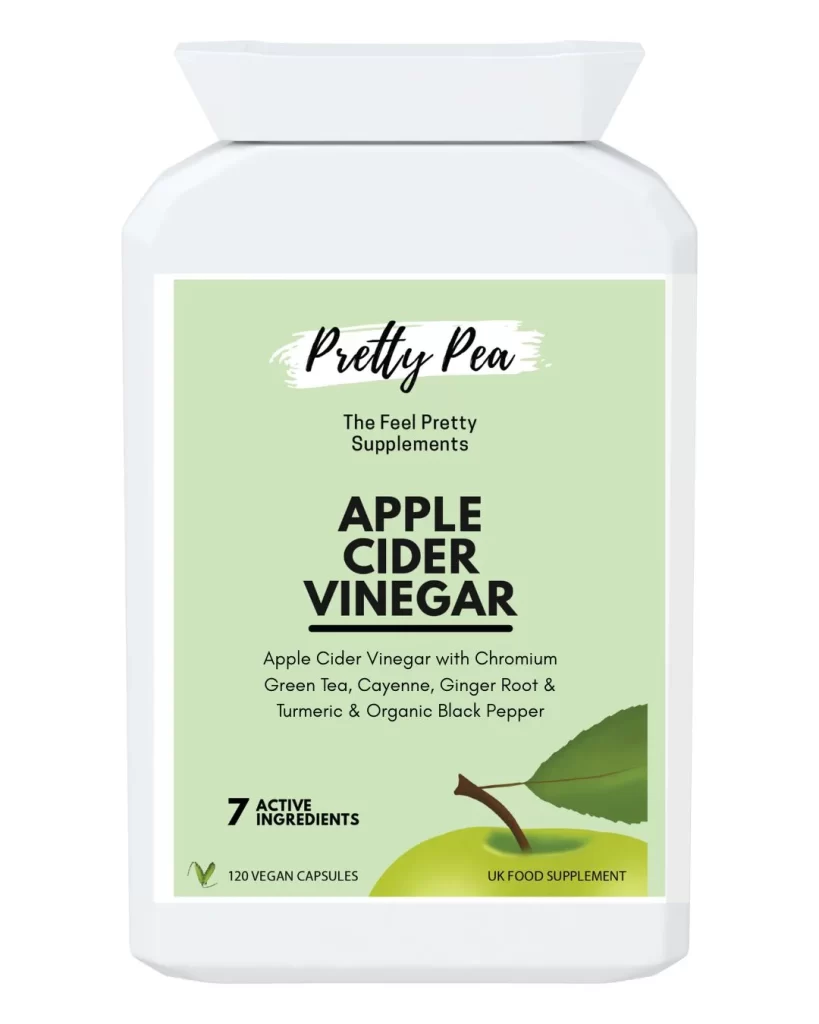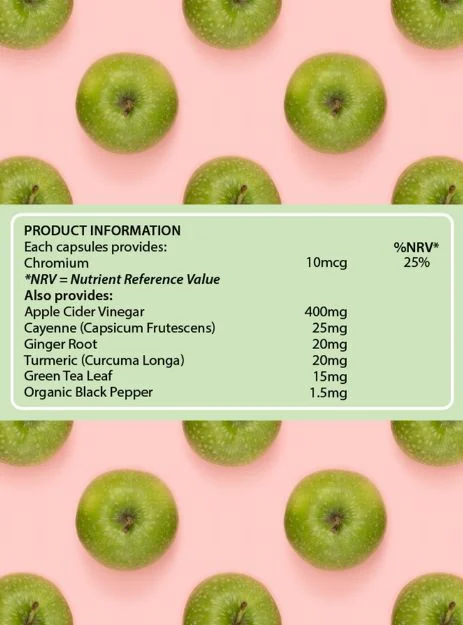



Apple Cider Vinegar Supplement
APPLE CIDER VINEGAR SUPPLEMENT PLUS+
£25.99
All the benefits of an Apple Cider Vinegar supplement PLUS:
- Chromium
- Green Tea
- Cayenne
- Turmeric
- Ginger




FEEL PRETTY FROM WITHIN
Elevating Your Body From the Inside Out with Plant-Powered Goodness!

Chromium
Chromium Contributes to normal Blood Sugar Levels

Chromium
Chromium Contributes to normal Macronutrient Metabolism

Botanicals
Green Tea, Turmeric, Cayenne & Ginger
What is Apple Cider Vinegar
+
How many servings
+
Contains 120 Vegan Easy Take Capsules
How to use
+
Take 1 capsule, 2 to 3 times per day or as advised by your healthcare provider.
Safety & Contraindications
Results may vary from person to person.
Store in a cool dry place, out of the reach of children.
Best before date: see base of container.
Caution: Do not exceed the recommended daily intake.
A food supplement should not be used as a substitute for a varied, balanced diet and healthy lifestyle. Always consult your GP before taking food supplements if you are taking medication or have an existing medical condition. If you feel unwell, stop taking this product immediately and seek medical advice.
References
Chromium as an essential nutrient for humans – PubMed (nih.gov)
Chromium and insulin resistance – PubMed (nih.gov)